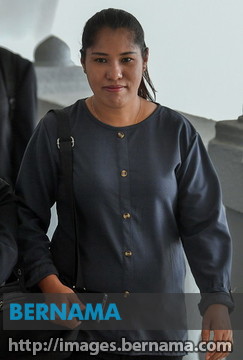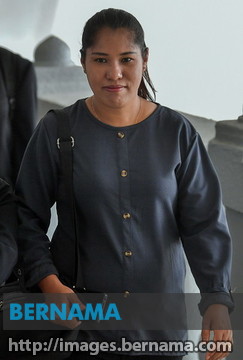
Federal Court Denies Perlis Government’s Review on Children’s Muslim Status
In a significant legal ruling, the Federal Court has denied the Perlis government’s request to review the decision regarding the Muslim status of Loh Siew Hong’s three children, who were converted to Islam without her consent. This case has garnered considerable attention, highlighting the complexities and controversies surrounding religious conversion laws in Malaysia.
Background of the Case
Loh Siew Hong, a Malaysian woman, has been at the center of a legal battle concerning the unilateral conversion of her children to Islam. In Malaysia, the issue of religious conversion, especially involving minors, is a contentious topic, often intersecting with personal rights, parental authority, and religious freedoms. The Perlis government had sought to overturn a previous ruling by the Court of Appeal, which allowed Loh to restore her children’s original religious status, a decision that underscored the importance of parental rights in matters of religious upbringing.
The Court’s Decision
On April 8, 2025, the Federal Court’s decision marked a pivotal moment in this ongoing legal saga. The court ruled against the Perlis government, thereby upholding the Court of Appeal’s decision that favored Loh Siew Hong. This ruling is significant not only for Loh and her family but also for many other families facing similar situations in Malaysia.
The court’s decision reflects a growing recognition of the complexities involved in cases of religious conversion, particularly when minors are concerned. It also raises important questions about the balance between state interests in religious matters and individual rights, particularly the rights of parents to make decisions about their children’s upbringing.
- YOU MAY ALSO LIKE TO WATCH THIS TRENDING STORY ON YOUTUBE. Waverly Hills Hospital's Horror Story: The Most Haunted Room 502
Implications of the Ruling
The implications of this ruling extend beyond Loh’s personal circumstances. It sets a precedent in Malaysian courts regarding the unilateral conversion of children to Islam, emphasizing the importance of consent from both parents in such matters. This case could potentially influence future legal decisions involving religious conversion and parental rights, particularly in a multicultural and multi-religious society like Malaysia.
Moreover, this ruling could prompt lawmakers to revisit and possibly reform existing laws surrounding religious conversions, especially those that involve minors. It highlights the need for a more balanced approach that respects both religious freedoms and the rights of parents to guide their children’s spiritual upbringing.
Public Reaction
The public response to this ruling has been mixed, with many expressing support for Loh Siew Hong’s struggle to retain parental authority over her children’s religious identity. Advocacy groups for religious freedom and parental rights have hailed the decision as a victory for individual rights. Conversely, some factions within the religious community may view this ruling as an infringement on the state’s role in matters of religion.
Conclusion
The Federal Court’s denial of the Perlis government’s review regarding Loh Siew Hong’s children’s Muslim status is a landmark decision that underscores the intricate interplay between religion, law, and parental rights in Malaysia. As the country grapples with issues of religious identity and conversion, this case serves as a critical reminder of the importance of protecting individual rights against unilateral state actions.
Moving forward, this ruling may inspire further discussions on religious conversion laws and their implications for families in Malaysia, potentially leading to legislative changes that provide clearer guidelines on the rights of parents and the process of religious conversions for minors. As society continues to evolve, so too must the legal frameworks that govern these sensitive issues, ensuring that they reflect the diverse and pluralistic nature of Malaysian society.

JUST IN: The Federal Court has denied the Perlis government’s review to reinstate the Muslim status of Loh Siew Hong’s three children, who were unilaterally converted to Islam.
The Perlis government sought to reverse the Court of Appeal’s decision allowing Loh to restore her… https://t.co/ObfPRQ6565 pic.twitter.com/b9bSuI0YOF
— BFM news (@NewsBFM) April 8, 2025
JUST IN: The Federal Court Has Denied the Perlis Government’s Review to Reinstate the Muslim Status of Loh Siew Hong’s Three Children, Who Were Unilaterally Converted to Islam
When it comes to family and religion, emotions often run deep. Recently, a significant legal decision was made that has stirred considerable discussion in Malaysia. The Federal Court made headlines by denying the Perlis government’s request to reinstate the Muslim status of Loh Siew Hong’s three children. This case has been under scrutiny, primarily because the children were unilaterally converted to Islam, raising questions about parental rights, religious freedom, and the legal system in Malaysia.
The Background of the Case
To understand the implications of this ruling, let’s take a step back and look at the background of this controversial case. Loh Siew Hong, a mother from Malaysia, found herself in a complicated situation after her three children were converted to Islam without her consent. This kind of unilateral conversion isn’t just a personal issue; it opens up a broader debate about religious practices and the rights of parents in Malaysia.
The Perlis government, in a bid to reverse the Court of Appeal’s decision that allowed Loh to restore her children’s original status, has now faced a setback in the Federal Court. The Court of Appeal previously ruled in favor of Loh, allowing her to reclaim her children’s original religious status. This ruling was seen as a significant affirmation of parental rights and a pushback against unilateral religious conversions.
The Legal Framework Surrounding Unilateral Conversions
In Malaysia, the law surrounding religious conversions is complex and often contentious. The Federal Constitution provides for freedom of religion, yet there are state laws that govern how conversions can be conducted, particularly concerning minors. The case of Loh Siew Hong raises important questions about how these laws are interpreted and applied.
Many argue that unilateral conversions, especially of minors, infringe upon the rights of the non-converting parent. In Loh’s case, the argument is that her children’s conversion was not only done without her consent but also without taking into account her rights as a mother. The legal implications of this case extend beyond Loh and her family, impacting many others who may find themselves in similar situations.
The Impact of the Ruling on Loh Siew Hong and Her Family
For Loh Siew Hong, the Federal Court’s decision represents a significant personal loss. Her battle to restore her children’s religious status has been ongoing, and with this ruling, it seems she has hit another roadblock. It’s not just about the legalities; it’s about a mother’s love and her desire to raise her children according to her beliefs.
The decision has sparked outrage among advocates for parental rights and religious freedom. Many people empathize with Loh’s plight, understanding that a mother’s role in her children’s upbringing is crucial. This ruling could have long-lasting effects, not just on Loh and her family but on countless others navigating the intricate web of religion and law in Malaysia.
The Broader Conversation on Religious Freedom in Malaysia
This case has ignited a larger conversation about religious freedom in Malaysia. While the country is known for its diverse tapestry of cultures and religions, the laws governing religious practices often lead to tension and conflict. The unilateral conversion of minors, as seen in Loh’s case, raises critical questions about the balance between individual rights and religious practices.
Supporters of Loh Siew Hong argue that the ruling is a step backward for religious freedom, emphasizing that parents should have a say in their children’s religious upbringing. This sentiment resonates with many who believe that religious practices should not infringe on family rights.
On the other hand, proponents of the Perlis government’s position argue that the sanctity of religious beliefs must be upheld. They believe that the state has a role in ensuring that religious conversions are respected and maintained. This clash of ideologies illustrates the complexity of navigating religious freedoms within the legal framework of Malaysia.
The Role of Media in Shaping Public Opinion
In today’s digital age, the media plays a crucial role in shaping public opinion. News outlets, social media platforms, and online discussions have amplified Loh Siew Hong’s story, bringing it to the forefront of national conversation. The coverage of this case has sparked debates across various platforms, with many sharing their opinions on the matter.
The way this case has been reported can influence how the public perceives not only Loh’s situation but also the broader issues of parental rights and religious freedom. Engaging with the media has allowed Loh to share her story, rallying support from those who empathize with her struggle.
Moreover, the role of social media cannot be understated. Platforms like Twitter and Facebook enable individuals to voice their opinions and mobilize support quickly, creating a sense of community around shared experiences. The hashtags and discussions surrounding Loh’s case have brought attention to the legal and emotional complexities of unilateral conversions.
What Lies Ahead for Loh Siew Hong and Similar Cases
As the dust settles from the recent ruling, many are left wondering what the future holds for Loh Siew Hong and her children. The legal journey may not be over yet, as there may still be avenues for appeal or further legal action. Loh’s fight highlights the ongoing struggle for parents facing similar challenges in Malaysia.
For many, this case serves as a reminder of the importance of advocating for parental rights and religious freedoms. It underscores the need for dialogue and reform in the laws governing religious conversions, particularly when minors are involved. Loh’s story resonates with countless families navigating the delicate balance of faith, law, and parental responsibility.
Ultimately, this case will likely continue to provoke discussion and debate among legal experts, lawmakers, and the general public. As society evolves, so too must the laws that govern it, ensuring that they reflect the values and rights of all citizens.
Conclusion
The Federal Court’s decision to deny the Perlis government’s review regarding Loh Siew Hong’s children is a significant moment in Malaysia’s ongoing dialogue about parental rights and religious freedom. This case serves as a poignant reminder of the complexities involved when personal beliefs intersect with legal frameworks. As Loh continues her fight, her story will undoubtedly remain a focal point in the broader discussion about the rights of parents and the sanctity of family in matters of religion. The outcome of her struggle may influence future cases and the legislative landscape in Malaysia, making it a critical issue to watch moving forward.
